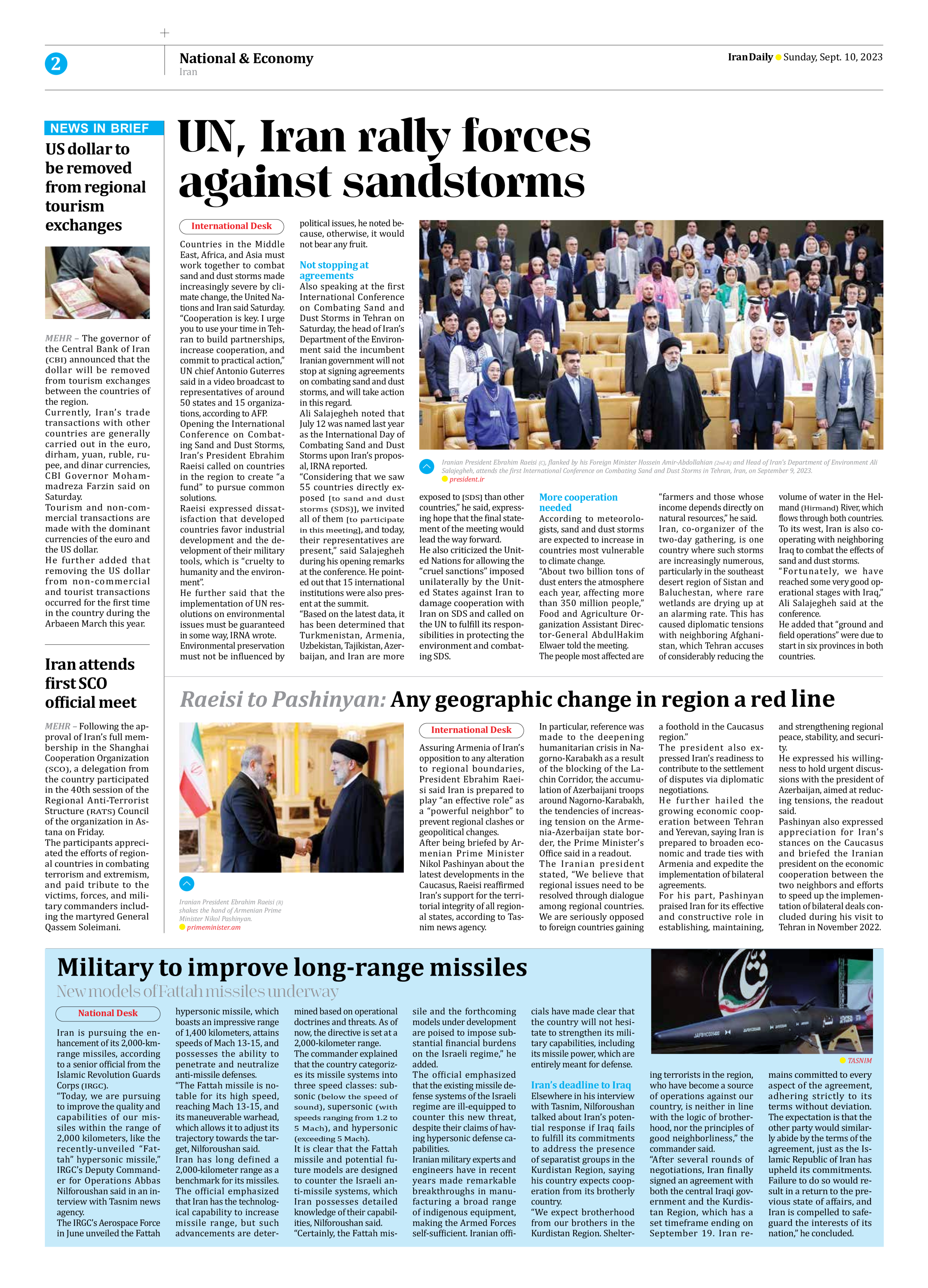
Military to improve long-range missiles
New models of Fattah missiles underway
Iran is pursuing the enhancement of its 2,000-km-range missiles, according to a senior official from the Islamic Revolution Guards Corps (IRGC).
“Today, we are pursuing to improve the quality and capabilities of our missiles within the range of 2,000 kilometers, like the recently-unveiled “Fattah” hypersonic missile,” IRGC’s Deputy Commander for Operations Abbas Nilforoushan said in an interview with Tasnim news agency.
The IRGC’s Aerospace Force in June unveiled the Fattah hypersonic missile, which boasts an impressive range of 1,400 kilometers, attains speeds of Mach 13-15, and possesses the ability to penetrate and neutralize anti-missile defenses.
“The Fattah missile is notable for its high speed, reaching Mach 13-15, and its maneuverable warhead, which allows it to adjust its trajectory towards the target, Nilforoushan said.
Iran has long defined a 2,000-kilometer range as a benchmark for its missiles. The official emphasized that Iran has the technological capability to increase missile range, but such advancements are determined based on operational doctrines and threats. As of now, the directive is set at a 2,000-kilometer range.
The commander explained that the country categorizes its missile systems into three speed classes: subsonic (below the speed of sound), supersonic (with speeds ranging from 1.2 to 5 Mach), and hypersonic (exceeding 5 Mach).
It is clear that the Fattah missile and potential future models are designed to counter the Israeli anti-missile systems, which Iran possesses detailed knowledge of their capabilities, Nilforoushan said.
“Certainly, the Fattah missile and the forthcoming models under development are poised to impose substantial financial burdens on the Israeli regime,” he added.
The official emphasized that the existing missile defense systems of the Israeli regime are ill-equipped to counter this new threat, despite their claims of having hypersonic defense capabilities.
Iranian military experts and engineers have in recent years made remarkable breakthroughs in manufacturing a broad range of indigenous equipment, making the Armed Forces self-sufficient. Iranian officials have made clear that the country will not hesitate to strengthen its military capabilities, including its missile power, which are entirely meant for defense.
Iran’s deadline to Iraq
Elsewhere in his interview with Tasnim, Nilforoushan talked about Iran’s potential response if Iraq fails to fulfill its commitments to address the presence of separatist groups in the Kurdistan Region, saying his country expects cooperation from its brotherly country.
“We expect brotherhood from our brothers in the Kurdistan Region. Sheltering terrorists in the region, who have become a source of operations against our country, is neither in line with the logic of brotherhood, nor the principles of good neighborliness,” the commander said.
“After several rounds of negotiations, Iran finally signed an agreement with both the central Iraqi government and the Kurdistan Region, which has a set timeframe ending on September 19. Iran remains committed to every aspect of the agreement, adhering strictly to its terms without deviation. The expectation is that the other party would similarly abide by the terms of the agreement, just as the Islamic Republic of Iran has upheld its commitments. Failure to do so would result in a return to the previous state of affairs, and Iran is compelled to safeguard the interests of its nation,” he concluded.







